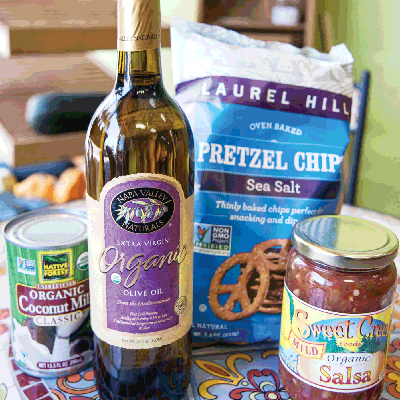However, a careful look at the Public Disclosure Commission’s records reveals that a significant portion of “YES” funding comes from two companies whose Washington-based status is at best in name only:
- Organic Consumers Fund – an allied organization of the Organic Consumers Association, which is headquartered in Minnesota
- Nature’s Path Foods USA – their home office is in Richmond, British Columbia, with a production facility in Washington (but they also have a production facility in Wisconsin).
Two other major contributors to the YES campaign are Illinois-based Mercola Health Resources LLC and California-based Dr. Bronner’s Magic Soaps. Together, these four contributors account for 49 percent of the total $5.5 million in “YES” cash funding.
The ongoing bickering and posturing about funding, however, distracts from the real debates swirling around I-522.
Whose science is right?
Opponents of I-522 state that GMO foods pose no health risk and that the initiative is based on bad science. Don Benz, M.D., a Vancouver-based primary care physician, pointed out that we’ve been cross-pollinating plants to arrive at better specimens for a very long time.
“Triticale is a nutritious, high-protein cross between wheat and rye,” said Benz. “We’re already ingesting GE foods without harm.”
“Genetically engineered (GE) food is really nothing more than what Native Americans did centuries ago when they invented corn,” concurred Julie Anderson, the owner of a small farm in north Clark County. “The only difference is now we have the technology to do it in a different way.”
But initiative supporters, such as Steve Hallstrom, an organic farmer near Chehalis who helped draft I-522, says GMOs are bad science. For example, said Hallstrom, “BT corn” (genetically engineered to contain a bacteria harmful to caterpillars) does not compost into humus when tilled into the field – instead, its cells are “like concrete.” Also, he said, some GMO corn fields in the Midwest are under quarantine because they contain a BT-resistant corn ear worm.
“[Genetic engineering] is a failed technology that is creating serious problems in the environment,” said Hallstrom.
Badly worded or sensible?
Another point of contention with I-522 is how it is worded. Opponents complain that it provides confusing information for consumers. For example, said Dave Zepponi, president of the NW Food Processors’ Association, all products containing sugar extracted from sugar beets would require the GMO label on the package – despite the fact that the way in which sugar beets are processed completely removes the GE protein from the end result.
Also, opponents decry exempted foods (such as restaurant food and meat and dairy products made from animals fed GMO fodder). But supporters point out that many of I-522’s exemptions are also exempt from federal labeling requirements.
Benz said that he thinks the initiative is “too open to interpretation.”
“It’s going to create a hornet’s nest of litigation for food producers and farmers that they cannot afford to bear,” warned Benz; Hallstrom argued that the initiative is “very clear” that the manufacturer of product is liable, not the grocery store or farmer.
Vancouver mayor Tim Leavitt, who supports I-522, said “oftentimes in the initiative process our state and citizens realize there may be some vagueness that could be filtered through state legal experts so it could be more effectively implemented. If voters decide I-522 is important, then it will be improved with minimal impact to businesses and farmers in our state.”
What will it cost?
Zepponi pointed out that a veggie burger could have as many as 25 ingredients, and food processors estimate GE sampling at $200 to $1,200 per sample. He added that GMO labeling could potentially harm brand integrity and could potentially slow product flow between states by requiring separate labeling processes for in- and out-of-state shipments.
Hallstrom, on the other hand, said that the audit costs are not that worrisome to farmers.
“If you’re not growing corn, canola, soybeans, sugar beets, or papayas,” said Hallstrom, “you don’t have to do anything.”
There’s bound to also be a cost to the state to implement the initiative. Hallstrom estimates this cost at $300,000 per year, while the state fiscal statement puts it at about $566,666 per year. Leavitt agreed that “any time there’s an increase in efforts to educate the public there are associated costs. The citizens will decide whether these costs are worthwhile.”
But Benz countered with a questions: “Where are they going to raise the money? We’re in a cash strapped economy in Washington already.”
What happens after November 5?
Washington voters will decide the fate of I-522 within a fortnight. Whether it passes or not, Leavitt sees this as an opportunity for both sides of the argument.
“Our public is feeling a bit dismayed with the lack of collaboration in both government and the private sector,” said Leavitt. “Did [the opposing organizations] participate in the development of I-522, and if not – why not?”
If it passes, concluded Leavitt, he hopes that those who oppose it would be willing to help tighten the language if necessary, and create a solution that works for both sides.
{jathumbnail off}










